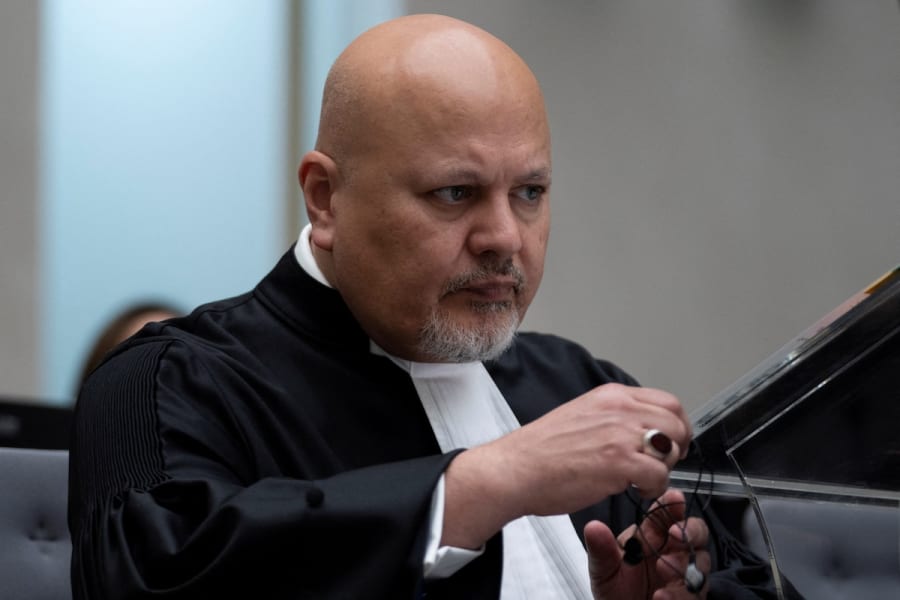ICC postpones decision on arrest warrants for PM Netanyahu and DM Gallant
World Court prosecutor Khan issued arrest warrants against the two Israeli leaders in May over alleged 'war crimes'

The International Criminal Court (ICC) Pre-Trial Chamber I decided on Thursday to delay its decision on whether to allow ICC prosecutor Karim Khan to issue arrest warrants against Israeli Prime Minister Benjamin Netanyahu and Defense Minister Yoav Gallant over alleged war crimes. The postponement follows the UK’s filing of an amicus brief challenging the court’s jurisdiction.
The UK’s argument is based on a previous case in which the ICC ruled it must address Israel’s claim that the Palestinian Authority’s (PA) request to join the ICC violates the Oslo Accords, a series of agreements signed in 1990 between Israel and the Palestine Liberation Organization (PLO) aimed at achieving a peace treaty.
The decision becomes relevant if an ICC prosecutor seeks future arrest warrants against Israeli nationals.
The United Kingdom specifies that the PA cannot have jurisdiction over Israeli nationals under the terms of the Oslo Accords and, therefore, cannot transfer that jurisdiction to the ICC to prosecute Israelis.
“The United Kingdom submits that the Chamber, pursuant to Article 19(1) of the Rome Statute, ‘is required to make an initial determination of jurisdiction in resolving the application for arrest warrants’ of which ‘the Oslo Accords issue necessarily forms part,’” the court noted.
The ICC's three-judge panel has given the UK and other countries until July 12 to intervene and file briefs challenging the court’s jurisdiction.
"Whilst the following must not be understood as an open call by the Chamber for amicus curiae submissions, the Chamber acknowledges that the Request, and the Chamber’s decision to grant the United Kingdom leave to file observations, may result in other requests to submit observations,” the court stated.
The ICC also confirmed that the briefs and subsequent proceedings could be made public, even though arrest warrant procedures are typically kept secret to avoid alerting the suspect.
According to Dr. Tal Mimran, a law and technology lecturer at Hebrew University of Jerusalem and program director at the Tachlith Institute, the delay in the ICC’s decision-making process regarding the arrest warrants for Netanyahu and Gallant is not expected to last long.
In May, Khan announced he was seeking arrest warrants for Netanyahu and Gallant due to alleged crimes of “causing extermination, causing starvation as a method of war including the denial of humanitarian relief supplies, deliberately targeting civilians in conflict.”
Israel, the United States and other international allies met the announcement with sharp criticism, with Netanyahu and U.S. President Joe Biden calling the ICC’s decision “outrageous.”
“The outrageous decision by the ICC prosecutor, Karim Khan, to seek arrest warrants against the democratically elected leaders of Israel is a moral outrage of historic proportions. It will cast an everlasting mark of shame on the international court,” Netanyahu said in a May video address.
“Israel is waging a just war against Hamas, a genocidal terrorist organization that perpetrated the worst attack on the Jewish people since the Holocaust. Hamas massacred 1,200 Jews, raped Jewish women, burned Jewish babies, took hundreds hostage.”
Netanyahu went on to call Khan’s actions a “blood libel” and an attempt to deny Israel its fundamental right to self-defense, and affirming Israel’s unparalleled efforts to protect civilians in Gaza while battling Hamas.
“Israel will continue to wage this war in full compliance with international law. We will continue to take unprecedented measures to get innocent civilians out of harm’s way and to ensure that humanitarian assistance reaches those in need in Gaza,” the prime minister pledged.
In May, the ICC also filed warrants against the top Hamas leaders Yahya Sinwar, Mohammad Deif and Ismail Haniyeh.

The All Israel News Staff is a team of journalists in Israel.
You might also like to read this:















